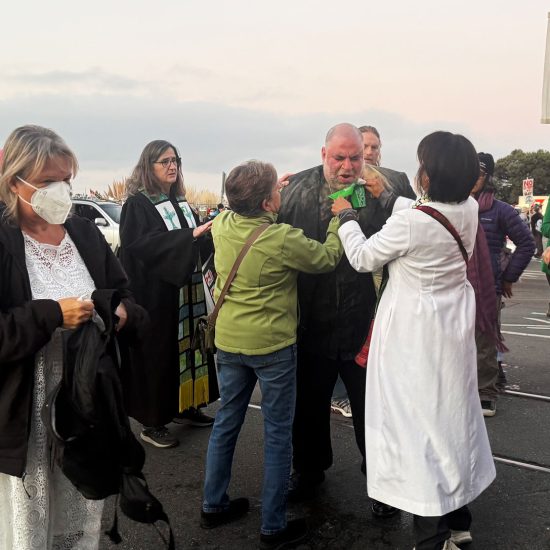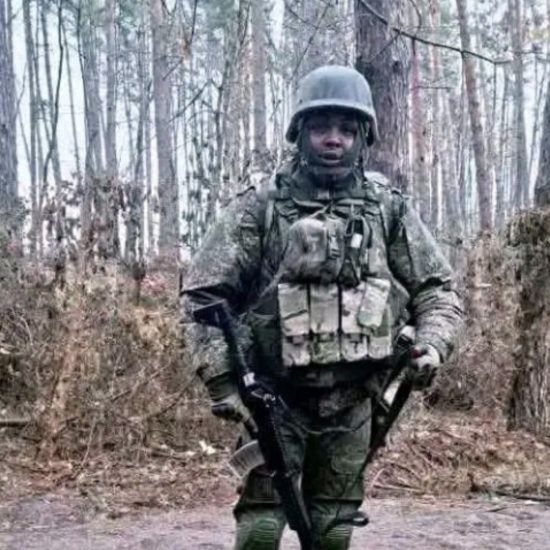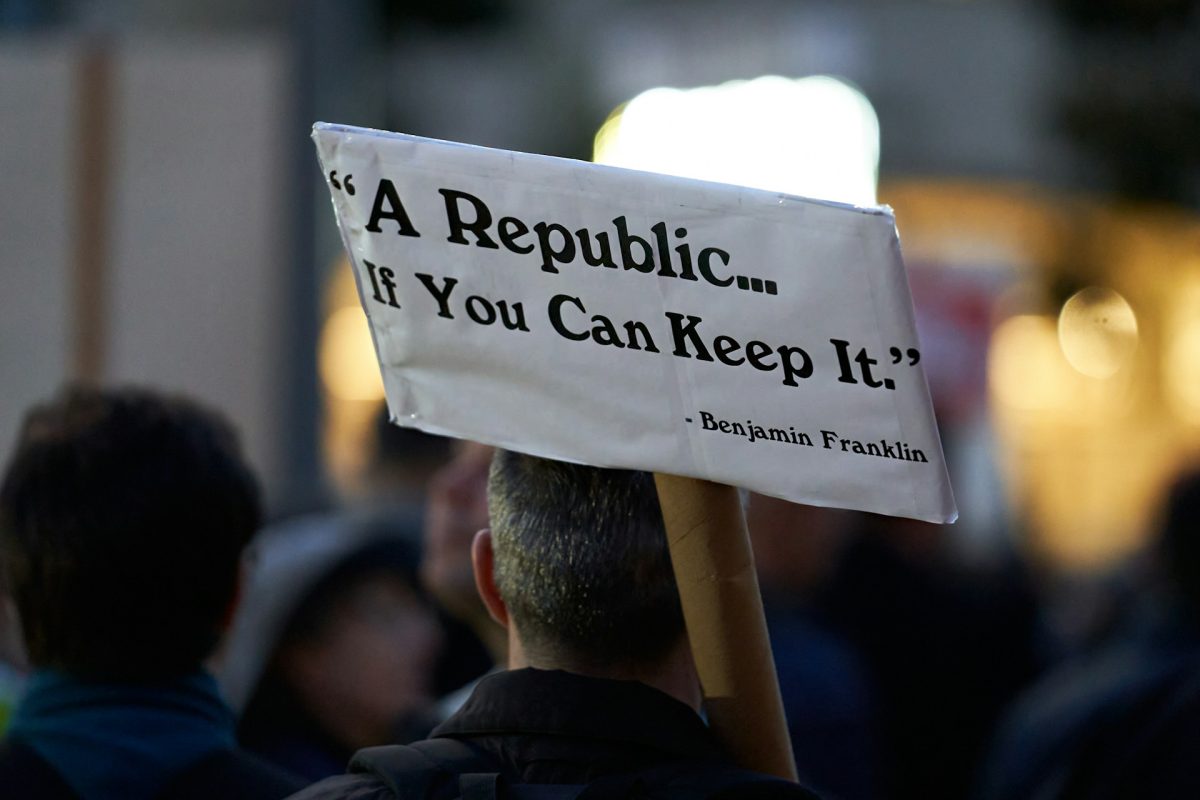
Imagine democracy lies in a corner suite of the ICU at Johns Hopkins Medical Center. The chart staring at us from the computer screen shows the body wounded, in a coma, and with low blood pressure. The diagnosis is not promising. Whether or not democracy will recover is up for grabs.
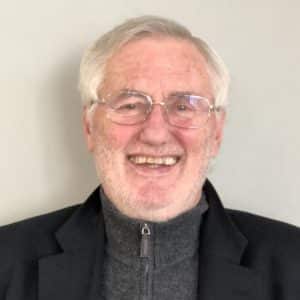
Rodney Kennedy
As historian David Blight says, “American democracy is in peril and nearly everyone paying attention is trying to find the best way to say so.” President Donald Trump has created a climate of political alienation, demagoguery, violence, and advancing authoritarianism. I am not an alarmist, but since this decline in democracy is fueled by the passions of MAGA evangelicals claiming a Christianity I don’t recognize, I feel a sense of call to express more than mild reservations.
Freedom House, in its Freedom in the World 2021: Democracy Under Siege report, wrote, “Even before 2020, Trump had presided over an accelerating decline in U.S. freedom scores, driven in part by corruption and conflicts of interest in the administration.” Moreover, around the world more countries have performed worse on various measures of freedom than have improved compared to any other point since 2005. Democracy itself has been rendered vulnerable. “The expansion of authoritarian rule, combined with fading and inconsistent presence of major democracies on the international stage, has had tangible effects on human life and security,” they concluded.
Not content with writing the obituary of democracy, as a member of the immediate family, I know there is life left in the wounded but majestic democracy. Democrats and Republicans should not despair of the messiness of democracy. It has always been that way, as the Anglicans pray, “As it was in the beginning, is now, and will be forever.”
The United States is being torn apart by questions surrounding an array of disembodied, void of meaning ideas, terms, and slogans. Democracy not only has that issue to confront, but the open attack on the rule of law by a convicted felon president inebriated by revenge, lust for power, and greed, puts democracy in a state of precarity. As a people, we are facing division we do not know how to heal.
I miss my former MAGA friends. Some of them were members of churches I served, people I love and respect as fellow Christians. Our current inability to communicate across the vast darkness of politics causes me deep grief. I want to discover a way back from the abyss. We are all complicit in the direction we have allowed democracy to take. As the wise woman of Proverbs puts it, This is the “way [that] leads down to death … to the shades; those who go [that way] never come back … nor do they regain the paths of life” (Proverbs 2:18–19).
Democracy is the bright and shining star in the political sky. Even if it is now only an article of faith, I still believe that if you scratch an American in Manhattan, New York, or Manhattan, Kansas, you will discover the blood of democracy coursing through their veins. But Vladimir Putin of Russia, Recep T. Erdogan of Turkey, Viktor Orbán of Hungary, and Jarosław Kaczyński of Poland are current examples of where a movement goes when democracy declines.
Democracy’s potential has always been far greater than its reality. Walt Whitman, America’s poet of democracy, observed: “We have frequently printed the word Democracy. Yet I cannot too often repeat that it is a word the real gist of which still sleeps, quite unawaken’d, notwithstanding the resonance and the many angry tempests out of which its syllables have come, from pen or tongue. It is a great word, whose history, I suppose, remains unwritten, because that history has yet to be enacted.”
James Kloppenberg has written a history of the movement of democracy with the hopeful title, Toward Democracy. Kloppenberg outlines the universal principles of democracy as popular sovereignty, autonomy, and equality. The tools of democracy have always been deliberation, pluralism, and reciprocity.
If our democracy has a chance to get out of the ICU and return to a vibrant life in the future, the universal principles of democracy in all their glorious ambiguity and messiness will need to be in fighting form.
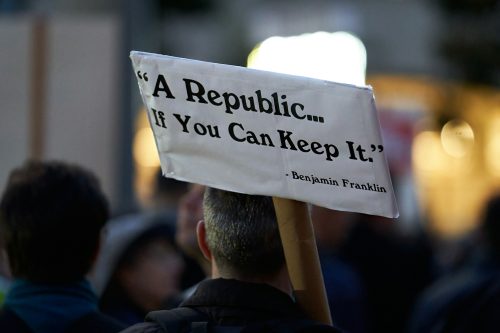
Photo by Mike Doherty on Unsplash
Popular Sovereignty
Popular sovereignty holds that the only source of political legitimacy is the will of the people. Does this conjure fears of populist excess, violations of individual rights, mob violence, and destabilization? If the recent town hall meetings by Republican members of the House and Senate are a sign, then the answer is yes.
Autonomy/Self-rule
If you attempt to build the conversation around the principle of autonomy/self-rule, you are faced with the necessity of people being capable of deliberate action as well as capable of acting in the framework of community standards and traditions.
Equality
A third principle of democracy fraught with difficulty is equality. One glance at the current onslaught of anti-diversity, equity, and inclusion efforts in the administration indicates a deep divide over the degree of equality required to allow for the exercise of equal opportunity. For instance, anti-DEI efforts are erasing the contributions of African Americans, women, LGBT+ people, and other minorities from the Department of Defense web pages.
Replace deliberation, pluralism, and reciprocity with decrees, autocracy, and revenge, and none of our institutions will work for long, and we will be thrown into financial and political chaos.
Deliberation
Deliberation means long and careful consideration or discussion of the issues. Disputes cannot be resolved without due deliberation. When the truth is not unitary, as in our current situation, and when meaning is not fixed, only sustained deliberation offers us hope.
Plurality
Consider that we are a people of deep convictions about how our political life should be governed. That is pluralism. We do have a pluralism of views about how much power the executive should have, how much power a federal judge should have, and how much power Congress should have.
In other words, we are having constitutional arguments that put us in league with the Founding Fathers. Our Constitution is the result of the deliberation, pluralism, and reciprocity of our Founding Fathers. When Benjamin Franklin emerged from Constitution Hall, a woman asked him, “What kind of government are you giving us?” He responded, “A republic, Madam, if you can keep it.”
Reciprocity
Reciprocity stands next to pluralism to insist that all people are to be treated with respect and their perspectives and aspirations are to be given due consideration. What if “we the people” remember that democracy involves harder work from each of us — endless negotiation and compromise between competing worldviews? We are not likely to reach an agreement on the hot-button social issues. This doesn’t imply a reason to demolish the house of democracy.
The patient can recover. Democracy struggles to swim in the currents of what is bigoted, narrow, restrictive, and ungenerous. After all, democracy offers us a richly endowed array of virtues that allow us to be generous to the world. If you have a capacity for generosity, wouldn’t you offer it to others? This is our time to demonstrate our true spirit as a people of democracy.
Rodney Kennedy has his M.Div. from New Orleans Theological Seminary and his Ph.D. in Rhetoric from Louisiana State University. The pastor of 7 Southern Baptist churches over the course of 20 years, he pastored the First Baptist Church of Dayton, Ohio — which is an American Baptist Church — for 13 years. He is currently professor of homiletics at Palmer Theological Seminary, and interim pastor of Emmanuel Friedens Federated Church, Schenectady, New York. His eighth book, Dancing with Metaphors in the Pulpit, is out now from Cascade Books.

